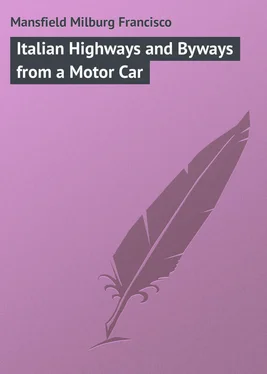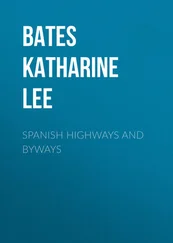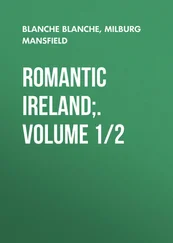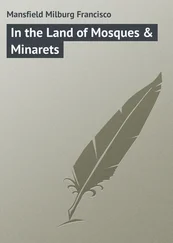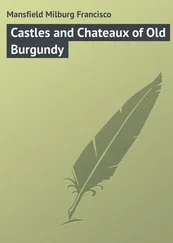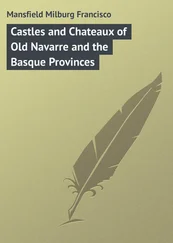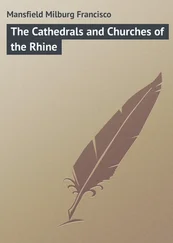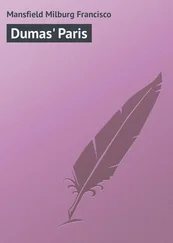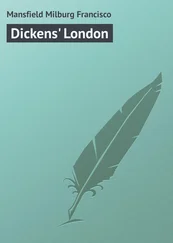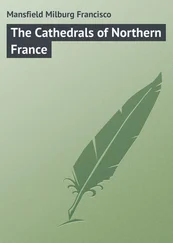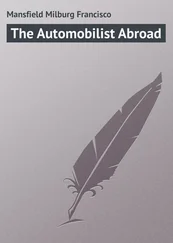Milburg Mansfield - Italian Highways and Byways from a Motor Car
Здесь есть возможность читать онлайн «Milburg Mansfield - Italian Highways and Byways from a Motor Car» — ознакомительный отрывок электронной книги совершенно бесплатно, а после прочтения отрывка купить полную версию. В некоторых случаях можно слушать аудио, скачать через торрент в формате fb2 и присутствует краткое содержание. Жанр: foreign_prose, Путешествия и география, на английском языке. Описание произведения, (предисловие) а так же отзывы посетителей доступны на портале библиотеки ЛибКат.
- Название:Italian Highways and Byways from a Motor Car
- Автор:
- Жанр:
- Год:неизвестен
- ISBN:нет данных
- Рейтинг книги:3 / 5. Голосов: 1
-
Избранное:Добавить в избранное
- Отзывы:
-
Ваша оценка:
- 60
- 1
- 2
- 3
- 4
- 5
Italian Highways and Byways from a Motor Car: краткое содержание, описание и аннотация
Предлагаем к чтению аннотацию, описание, краткое содержание или предисловие (зависит от того, что написал сам автор книги «Italian Highways and Byways from a Motor Car»). Если вы не нашли необходимую информацию о книге — напишите в комментариях, мы постараемся отыскать её.
Italian Highways and Byways from a Motor Car — читать онлайн ознакомительный отрывок
Ниже представлен текст книги, разбитый по страницам. Система сохранения места последней прочитанной страницы, позволяет с удобством читать онлайн бесплатно книгу «Italian Highways and Byways from a Motor Car», без необходимости каждый раз заново искать на чём Вы остановились. Поставьте закладку, и сможете в любой момент перейти на страницу, на которой закончили чтение.
Интервал:
Закладка:
We were dutifully ravished by the splendours of the Venetian palaces, and duly impressed by the massiveness of Sant’Angelo; but we were more pleased by far in coming unexpectedly upon the Castle of Fénis in the Valle d’Aoste, one of the finest of all feudal fortresses; or the Castle of Rimini sitting grim and sad in the Adriatic plain; or the Villa Cesarini outside of Perugia, which no one has ever reckoned as a wonder-work of architecture, but which all the same shows all of the best of Italian villa elements.
Our taste has been catholic, and the impressions set forth herein are our own. Others might have preferred to admire some splendid church whilst we were speculating as to some great barbican gateway or watch tower. A saintly shrine might have for some more appeal than a hillside fortified Rocca ; and again some convent nunnery might have a fascination that a rare old Renaissance house, now turned into a macaroni factory, or a wine press, might not.
CHAPTER II
OF ITALIAN MEN AND MANNERS
ITALIAN politics have ever been a game of intrigue, and of the exploiting of personal ambition. It was so in the days of the Popes; it is so in these days of premiers. The pilots of the ships of state have never had a more perilous passage to navigate than when manœuvring in the waters of Italian politics.
There is great and jealous rivalry between the cities of Italy. The Roman hates the Piedmontese and the Neapolitan and the Bolognese, and they all hate the Roman, – capital though Rome is of Church and State.
The Evolution of Nationality has ever been an interesting subject to the stranger in a strange land. When the national spirit at last arose Italy had reached modern times and become modern instead of mediæval. National character is born of environment, but nationalism is born only of unassailable unity, a thorough absorbing of a love of country. The inhabitant of Rouen, the ancient Norman capital, is first, last and all the time a Norman, but he is also French; and the dweller in Rome or Milan is as much an Italian as the Neapolitan, though one and all jealously put the Campagna, Piedmont, or the Kingdom of Naples before the Italian boot as a geographical division. Sometimes the same idea is carried into politics, but not often. Political warfare in Italy is mostly confined to the unquenchable prejudices existing between the Quirinal and the Vatican, a sort of inter urban warfare, which has very little of the aspect of an international question, except as some new-come diplomat disturbs the existing order of things. The Italian has a fondness for the Frenchman, and the French nation. At least the Italian politician has, or professes to have, when he says to his constituency: “I wish always for happy peaceful relations with France … but I don’t forget Magenta and Solferino.”
The Italians of the north are the emigrating Italians, and make one of the best classes of labourers, when transplanted to a foreign soil. The steamship recruiting agents placard every little background village of Tuscany and Lombardy with the attractions of New York, Chicago, New Orleans and Buenos Ayres, and a hundred or so lire paid into the agent’s coffers does the rest.
Calabria and Sicily are less productive. The sunny Sicilian always wants to take his gaudily-painted farm cart with him, and as there is no economic place for such a useless thing in America, he contents himself with a twenty-hour sea voyage to Tunisia where he can easily get back home again with his cart, if he doesn’t like it.
Every Italian peasant, man, woman and child, knows America. You may not pass the night at Barberino di Mugello, may not stop for a glass of wine at the Osteria on the Futa Pass, or for a repast at some classically named borgo on the Voie Æmilia but that you will set up longings in the heart of the natives who stand around in shoals and gaze at your automobile.
They all have relatives in America, in New York, New Orleans or Cripple Creek, or perhaps Brazil or the Argentine, and, since money comes regularly once or twice a year, and since thousands of touring Americans climb about the rocks at Capri or drive fire-spouting automobiles up through the Casentino, they know the new world as a land of dollars, and dream of the day when they will be able to pick them up in the streets paved with gold. That is a fairy-tale of America that still lives in Italy.
Besides emigrating to foreign lands, the Italian peasant moves about his own country to an astonishing extent, often working in the country in summer, and in the towns the rest of the time as a labourer, or artisan. The typical Italian of the poorer class is of course the peasant of the countryside, for it is a notable fact that the labourer of the cities is as likely to be of one nationality as another. Different sections of Italy have each their distinct classes of country folk. There are landowners, tenants, others who work their land on shares, mere labourers and again simple farming folk who hire others to aid them in their work.
The braccianti , or farm labourers, are worthy fellows and seemingly as intelligent workers as their class elsewhere. In Calabria they are probably less accomplished than in the region of the great areas of worked land in central Italy and the valley of the Po.
The mezzadria system of working land on shares is found all over Italy. On a certain prearranged basis of working, the landlord and tenant divide the produce of the farm. There are, accordingly, no starving Italians, a living seemingly being assured the worker in the soil. In Ireland where it is rental pure and simple, and foreclosure and eviction if the rent is not promptly paid, the reverse is the case. Landlordism of even the paternal kind – if there is such a thing – is bad, but co-operation between landlord and tenant seems to work well in Italy. It probably would elsewhere.
The average Italian small farm, or podere , worked only by the family, is a very unambitious affair, but it produces a livelihood. The house is nothing of the vine-clad Kent or Surrey order, and the principal apartment is the kitchen. One or two bedrooms complete its appointments, with a stone terrace in front of the door as it sits cosily backed up against some pleasant hillside.
There are few gimcracks and dust-harbouring rubbish within, and what simple furniture there is is clean – above all the bed-linen. The stable is a building apart, and there is usually some sort of an out-house devoted to wine-pressing and the like.
A kitchen garden and an orchard are near by, and farther afield the larger area of workable land. A thousand or twelve hundred lire a year of ready money passing through the hands of the head of the family will keep father, mother and two children going, besides which there is the “living,” the major part of the eatables and drinkables coming off the property itself.
The Italians are as cleanly in their mode of life as the people of any other nation in similar walks. Let us not be prejudiced against the Italian, but make some allowance for surrounding conditions. In the twelfth century in Italy the grossness and uncleanliness were incredible, and the manners laid down for behaviour at table make us thankful that we have forks, pocket-handkerchiefs, soap and other blessings! But then, where were we in the twelfth century!
No branch of Italian farming is carried on on a very magnificent scale. In America the harvests are worked with mechanical reapers; in England it is done with sickle and flail or out of date patterns of American machines, but in Italy the peasant still works with the agricultural implements of Bible times, and works as hard to raise and harvest one bushel of wheat as a Kansas farmer does to grow, harvest and market six. The American farmer has become a financier; the Italian is still in the bread-winning stage. Five hundred labourers in Dakota, of all nationalities under the sun, be it remarked, on the Dalrymple farm, cut more wheat than any five thousand peasants in Europe. The peasant of Europe is chiefly in the stage of begging the Lord for his daily bread, but as soon as he gets out west in America, he buys store things, automatic pianos and automobile buggies. No wonder he emigrates!
Читать дальшеИнтервал:
Закладка:
Похожие книги на «Italian Highways and Byways from a Motor Car»
Представляем Вашему вниманию похожие книги на «Italian Highways and Byways from a Motor Car» списком для выбора. Мы отобрали схожую по названию и смыслу литературу в надежде предоставить читателям больше вариантов отыскать новые, интересные, ещё непрочитанные произведения.
Обсуждение, отзывы о книге «Italian Highways and Byways from a Motor Car» и просто собственные мнения читателей. Оставьте ваши комментарии, напишите, что Вы думаете о произведении, его смысле или главных героях. Укажите что конкретно понравилось, а что нет, и почему Вы так считаете.
